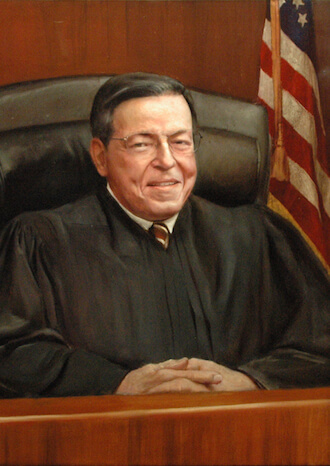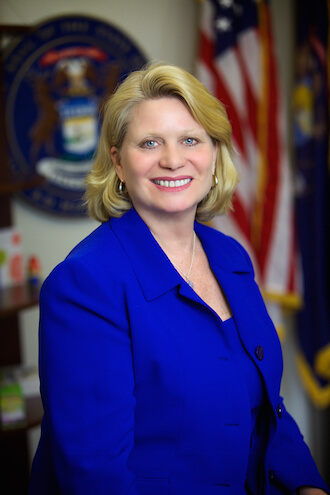Successful Alabama marriage equality plaintiffs Cari Searcy and Kimberly McKeand, with their son K.S. | FREEDOM TO MARRY
As it has done consistently since early October, the United States Supreme Court this morning denied the State of Alabama’s petition to extend the stay on two federal court marriage equality rulings while the state prepares to appeal them.
[Editor's update: On February 12, US District Court Judge Callie V.S. Granade ordered Mobile County Probate Judge Don Davis to issue marriage licenses to same-sex couples, a development that could ease the resistance on the part of about two-thirds of the state's probate judges, who were declining to do so merely on the basis of Granade's earlier rulings finding Alabama's ban on same-sex marriage unconstitutional.]
The temporary stays, granted by Judge Callie V.S. Granade of the Southern District of Alabama on decisions she issued on January 23 and 27, expired at midnight last night and, with the high court’s refusal to extend them, same-sex couples were eligible to obtain marriage licenses when the county probate courts opened at 9 a.m. Central Time, moments after the high court handed down its order.
In a striking dissent, Justice Clarence Thomas, joined by Justice Antonin Scalia, wrote, “Today’s decision represents yet another example of this Court’s increasingly cavalier attitude toward the States… I would have shown the people of Alabama the respect they deserve and preserved the status quo while the Court resolves this important constitutional question.”
Thomas was referring to the court’s decision last month to review a Sixth Circuit Court of Appeals ruling that struck down marriage equality victories in Ohio, Michigan, Tennessee, and Kentucky.
In October, the high court declined review of pro-gay rulings out of the Fourth, Seventh, and 10th Circuits, and since that time 17 new states –– in those circuits, plus in the Ninth Circuit, where a marriage equality ruling came down later in October, and in Florida –– began allowing same-sex couples to marry.
Between the time of its decision not to grant review in the Fourth, Seventh, and 10th Circuits and its January 16 announcement it would review the adverse ruling in the Sixth Circuit, the Supreme Court declined every motion for a stay filed by a state seeking delay of a district court marriage equality ruling.
The high court’s decision in late December to let marriages go ahead in Florida, however, represented the first time a district court ruling went into effect without first being reviewed at the circuit court of appeals level.
Despite the Supreme Court’s refusal to block gay marriage in Alabama, the willingness of probate court judges there to comply with Granade’s ruling remains a question mark. Last week, Liberty Counsel, a legal group that engages in litigation to block LGBT rights advances, announced it was representing at least five county probate court judges who would be resisting the order. Alabama has 67 counties.
Alabama Supreme Court Chief Justice Roy S. Moore. | ALABAMA SUPREME COURT
The local officials’ threats of defiance has high profile support from Alabama Supreme Court Chief Justice Roy S. Moore, who has gradually stepped up his war of words against Granade’s decision.
In a January 27 letter to Republican Governor Robert Bentley, asserting that the US Constitution gave Granade no authority for her ruling affecting marriage, which he termed a “divine institution,” Moore wrote, “I ask you to continue to uphold and support the Alabama Constitution with respect to marriage, both for the welfare of this state and for posterity. Be advised that I stand with you to stop judicial tyranny and any unlawful opinions issued without constitutional authority.”
Moore, last week, made the same argument in a letter to the probate judges, and then in a extraordinary order last evening, the chief justice ordered that they not comply, writing, “Effective immediately, no Probate Judge of the State of Alabama nor any agent or employee of any Alabama Probate Judge shall issue or recognize a marriage license that is inconsistent with” with the state’s constitution.
Moore's order was not a response to any court filing but rather undertaken, he explained, in his role as the “administrative head of the judicial system” in the state. Like the State Supreme Court justices, however, Alabama's county probate court judges win their office in partisan elections.
Media reports out of Alabama in the hour since the probate courts have opened indicate that at least some are issuing licenses to same-sex couples, though it is not clear how much effect Moore’s interference will have on stiffening the resolve of some counties to defy Granade’s order. Several hours after the probate offices opened, USA Today reported that more than half a dozen counties were refusing to issue marriage licenses to same-sex couples, some pointing to Moore's order.
CLICK ON COUNTY TO SEE STATUS (map by Al.com staffer Ian Hoppe)
Dothan, located in Houston County at the state's border with Georgia and Florida is denying marriage to all couples rather than issue licenses to same-sex couples.
In a very grudging acknowledgment of the Supreme Court's action, in which he said he agreed with Justice Thomas' dissent, Bentley indicated he would not “reprimand” any probate judge who defied Moore's order, saying, “I will not take any action against Probate Judges, which would only serve to further complicate this issue.” Even as he held out hope that Granade's ruling would eventually be overturned by the Supreme Court, the governor wrote, “We will follow the rule of law in Alabama.”
In his dissent for the US Supreme Court, Justice Thomas distinguished between the stay the high court had denied prior to accepting review in the Sixth Circuit case and the issues presented by Alabama’s motion.
Referring to the decisions not to block marriage in states including Florida, Thomas wrote, “Those denials followed this Court’s decision in October not to review seven petitions seeking further review of lower court judgments invalidating state marriage laws. Although I disagreed with the decisions to deny those applications… I acknowledge that there was at least an argument that the October decision justified an inference that the Court would be less likely to grant” review in any cases where states were trying to delay marriage while they appealed district court rulings.
The situation now, however, is different, Thomas asserted.
Even though the high court has agreed to hear the issue of marriage equality, he wrote, “the Court looks the other way as yet another Federal District Judge casts aside state laws without making any effort to preserve the status quo pending the Court’s resolution of a constitutional question it left open” when it decided the successful challenge to the Defense of Marriage Act in 2013. With a high court decision on whether same-sex couples have a federal constitutional right to marry just “several months” off, Thomas complained, “the Court refuses even to grant a temporary stay.”
It may well be, however, that the Supreme Court is now unwilling to halt marriage equality rulings temporarily because it is clear to a majority of the justices how this issue will be resolved.
Whatever the high court's action means for the future, today Alabama became the 37th state to allow same-sex couples to marry.





































